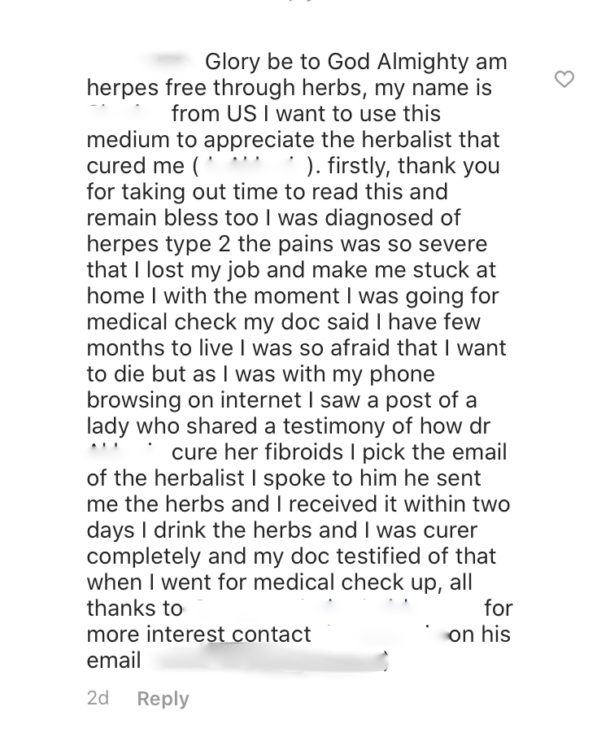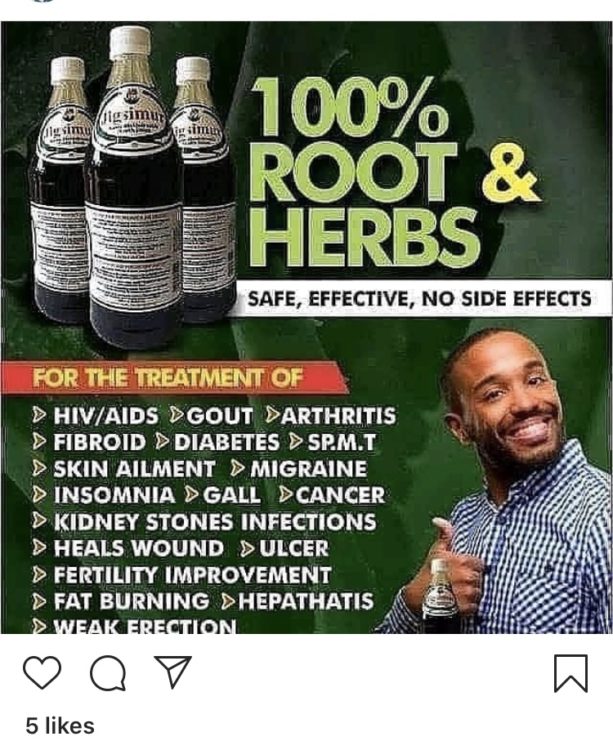Scrolling through Instagram with a coffee in one hand and my phone in the other is often a fun pastime. I can catch up with friends, look at pretty photography and recipe ideas and generally just switch-off.
But that is on my personal account. The story is a little different on my Instagram account
where I talk about my chronic illnesses. While that account has given me such a positive experience of connecting with others in a similar position, health-wise, to myself, it is also a place where I get targeted by companies trying to sell me “miracle cures.”
Being preyed upon online
Most days I get preyed upon online for living with chronic illness. I deliberately call it being preyed upon because companies (and I’m talking unscrupulous companies here, not reputable ones) are intentionally seeking me out to sell their often often unsafe products because I have fibromyalgia, dysautonomia, migraine and other conditions.
So how am I targeted online? Well, there are the direct messages to start with. Companies sliding into my DMs to tell me about their “exciting new product!!!” (there are always a lot of exclamation marks in those messages). One form of these messages involves telling me that I have been granted an EXCLUSIVE (always in capital letters) discount to their wonder drug, and that this wonder drug will cure me of my conditions. Often, these drugs are said to have cured the seller’s condition, or sometimes, the brother of their aunt’s oldest dog (yes, I’m being sarcastic, but you get the picture).

Other times, the messages involve a person who has clearly done some research on my account to identify my conditions. They always begin with “Hi Claire!” Then there’s a long chatty message as though we are best friends, before they go on to promote the herb or drug that will, I am told, cure me. It’s worrying, to say the least, to know that companies are scrolling through accounts working out who to target.
Ads don’t bother me as much as DMs, but it’s getting irritating that they saturate social media. If you scroll through a hashtag such as #chronicillness on Instagram you will quickly come across posts from companies selling dubious-looking products.

And don’t get me started on those Instagram comments from companies stating they can sell you herbs to cure herpes, cancer, AIDS and other conditions… Losing your home if you don’t buy their products because you will have have to pay for medical treatments seems to be their new scare-tactic.
Good products, bad products and totally unsafe products
While there are some wonderful companies out there producing high-quality products positively benefitting those living with chronic illness, other products seem “bad” or even downright dangerous. It can be hard to differentiate between good and bad products at times, but if a company is being rather vague about ingredients, the product has weird ingredients, a ton of stimulants, has forceful or immoral marketing tactics (often using scare-stories) or makes grand claims about its efficacy, then personally I will steer-clear. One company told a friend on Instagram that she didn’t care about her son’s health when she didn’t buy the herbs being sold.
Some of the most promoted products I have seen are “herbs” (often without actually saying what those herbs are). Often these products are claimed to offer a cure, even for conditions that have no cure (which is not to say you can’t manage symptoms, but some conditions cannot be cured). If anything could cure me of fibromyalgia, I have full faith that my doctor would have prescribed it long ago.
One thing worrying me is that people living with chronic illness often have to be
careful about the supplements they take. Herbs, vitamins or minerals can contra-indicate with prescribed medication, or be a known issue for certain conditions. Alcohol in tinctures or caffeine in tablets or liquids may not be a wise idea for people with a range of different conditions. If you shouldn’t eat grapefruit while taking certain drugs for heart conditions, I doubt that taking an unnamed herb is a good idea either.
Why are we targeted?
A while ago, I had a heartbreaking conversation with a woman who had spent a lot of money on an online test for fibromyalgia. She had done some googling after struggling with symptoms, and she found a company that claimed it could tell her whether she had the condition if she sent off some samples, and a big payment, of course.
She was told that her sample showed she had a high chance of having the condition. Understandably, she was panicky and worried, and didn’t know what to do.
There is, though, no test for fibromyalgia. It is, as the NHS describes, a diagnosis made based upon the exclusion of other conditions, and from a clinical assessment of symptoms meeting particular criteria. The fact that companies exist who claim they have a test that doctors don’t, only shows us that they have no integrity, and there needs to be tighter regulation of their practices. Of course, these companies aren’t offering any advice on management after they in-effect diagnose someone with a condition.
That regulation is needed because there are too many people in the world with one motivation — money. To them, we are a lucrative market to sell all kinds of products to, including unsafe ones. We are a source of cash, and they don’t care that many people with chronic illness have very little of it, as they may not be able to work full-time and instead rely on a part-time wage or disability benefits.
The thing that makes me most angry about this preying upon persons with chronic illness is that these companies know that many people are vulnerable and desperate for help. When symptoms are overwhelming and daily pain is a part of life, it is easy for people to put faith in anything claiming it will help. These companies know this and use it to their advantage. They play on our fears, and hope it will lead to us opening our wallets and producing a bank card.
My message to questionable companies
It’s unlikely that questionable companies will ever read this, but just in case they do…
The nice version:
Please leave us alone and keep your miracle cures to yourself. We don’t want to take potentially dangerous pills or herbs, and the way you target us is invasive and just plain irritating.
The stronger version:
Do not contact me, pretend to be my friend, fill my Instagram feed with your ads and post comments on my posts. It’s not just irritating, it’s infuriating. Don’t prey on my pain to get to my cash.
There is no miracle cure to my conditions, and pretending otherwise just shows the lack of morals you hold in targeting vulnerable persons, often in pain or experiencing other distressing symptoms, who would do almost anything to feel better. If there were a cure I would have been given it by my doctors (who actually have medical training, which you likely do not) and would already be symptom-free.
Do you think that we haven’t tried many things to help our symptoms? Of course we have. But we have tried treatments recommended by our doctors who have full access to our medical records and know the complexity of our (often multiple) conditions, symptoms, possible allergies and intolerances, current medications and lifestyle. You know none of this, yet try and sell me some “herbs” without any qualms over whether it could be dangerous. I’m guessing that doesn’t matter to you as long as you get our cash though, right?
Header: Getty image by fizkes

